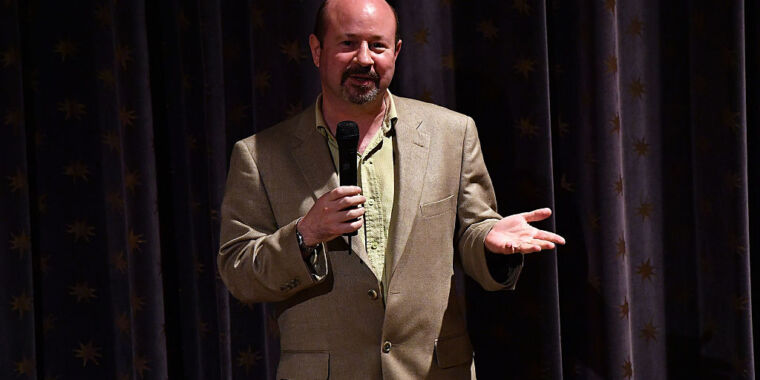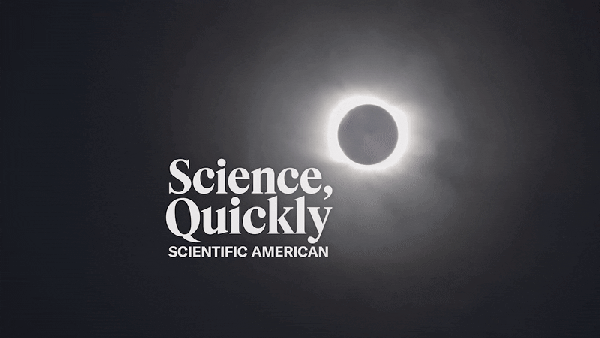| ? |
 |
|
Don't like ads? Go ad-free with TradeBriefs Premium    
CEO Picks - The best that international journalism has to offer!  S44 S44What Biden's Critics Get Wrong About His Gaffes   On Sunday, Speaker of the House Mike Johnson went on television and mixed up Iran and Israel. “We passed the support for Iran many months ago,” he told Meet the Press, erroneously referring to an aid package for the Jewish state. Last night, the Fox News prime-time host Jesse Watters introduced South Dakota Governor Kristi Noem as hailing from South Carolina. I once joined a cable-news panel where one of the participants kept confusing then–Attorney General Jeff Sessions with Representative Pete Sessions of Texas. I don’t hold these errors against anyone, as they are some of the most common miscues made by people who talk for a living—and I’m sure my time will come.Yesterday, President Joe Biden added another example to this list. In response to a question about Gaza, he referred to the Egyptian leader Abdel Fattah al-Sisi as the president of Mexico. The substance of Biden’s answer was perfectly cogent. The off-the-cuff response included geographic and policy details not just about Egypt, but about multiple Middle Eastern players that most Americans probably couldn’t even name. The president clearly knew whom and what he was talking about; he just slipped up the same way Johnson and so many others have. But the flub could not have come at a worse time. Because the press conference had been called to respond to Special Counsel Robert Hur’s report on Biden’s handling of classified documents, which dubbed the president an “elderly man with a poor memory,” the Mexico gaffe was immediately cast by critics as confirmation of Biden’s cognitive collapse.
Continued here
|
 S16 S16
| ? |
 |
 S32 S32 S40 S40How a Playwright Became One of the Most Incisive Social Critics of Our Time   In the summer of 2020, the playwright Michael R. Jackson received an unusual message from a fan of A Strange Loop, his musical about a gay Black man’s path to creative self-awareness through the process of writing a musical about a gay Black man’s path to creative self-awareness. “Can I buy you a bulletproof vest?” the fan inquired over Instagram.Jackson, who had just won a Pulitzer Prize for A Strange Loop and lived on a perfectly safe street in Upper Manhattan, had no more conceivable use for body armor or handouts than the next man. He told me about the proposal several months ago, over steak frites at Soho House, stressing its absurdity and presumptuousness. “Ur life matters so much. Ur writing matters so much. This is the most available and direct way I can think of protecting ur life and ur future plays,” the fan had explained.
Continued here
|
| ? |
 |
 S45 S45What the Colorado Oral Argument Missed   The justices seem ready to leave the issue of Donald Trump’s eligibility up to Congress. Here’s why they shouldn’t.Often the outcome of a Supreme Court case is hard to predict from its oral argument. Not yesterday’s.
Continued here
|
 S53 S53
| ? |
 |
|
| ? |
 |
|
|
 S39 S39Taylor Swift Is Just the Latest Subject in a Long History of Pop Conspiracy Theories   As weird as the conspiracy theory may sound, it’s just a few short hops away from a rather popular way of thinking about culture.You’d have to go back to the peak years of Bob Dylan’s cultural relevance, when one critic cum stalker started searching the songwriter’s garbage for clues about his lyrics, to find a musician who attracts as many amateur code breakers as Taylor Swift does. Swift has fed the frenzy by declaring that her songs, her liner notes, her social-media posts—basically everything around her—might have hidden meanings embedded in them. As she told The Washington Post in 2022, she and her fans have “descended into color coding, numerology, word searches, elaborate hints, and Easter eggs.”
Continued here
|
 S6 S6Why age matters when it comes to cancer   King Charles' cancer diagnosis may have sent shockwaves around the world over the past few days, not least because of Buckingham Palace's unusually candid disclosure. But many experts have taken the opportunity to raise awareness of the increased cancer risk that older people face.The steady march of time has long been known to be one of the greatest risk factors for developing cancer. According to the US National Cancer Institute, the average age of cancer onset is 66, while more than half of all new UK cancer cases are in those aged 70 and older.
Continued here
|
 S15 S15Second Private U.S. Moon Lander Readies for Launch   Intuitive Machines’ IM-1 is aiming to be the first commercial mission to softly land on another celestial body—and the first to deliver NASA equipment to the moonIn the ancient Greek epic the Odyssey, Ithacan king Odysseus doggedly sails through treacherous waters to get back home. As soon as this Valentine’s Day, a spacecraft of the same name will attempt a dangerous journey of its own: the first U.S. soft landing on the moon since 1972.
Continued here
|
 S38 S38The Validation Brigade Salutes Trump   Full support of the former president has become almost banal among Republicans, like joining a grocery line.Senator Shelley Moore Capito, Republican of West Virginia, officially endorsed Donald Trump’s campaign for reelection two Saturdays ago. The news landed as an afterthought, which is probably how she intended it. “Today at the @WVGOP Winter Meeting Lunch, I announced my support for President Donald Trump,” Capito wrote on X, as if she were making a dutiful entry in a diary.
Continued here
|
 S43 S43The Paradox of Stay-at-Home Parents   American society is largely built around the assumption that one parent will stay home. So why is there so little material support for homemakers?In two-thirds of American families with children, all parents work outside the home. But American society is still largely built around the assumption that one parent does not. The lack of affordable child care and the laughable mismatch between school hours and work hours (including summer vacation, when parents are left to figure out who will care for their kids for three months), have beneath them the idea that a stay-at-home parent (read: mother) should be around to take care of things. Yet paradoxically—and much less remarked upon—American society also gives stay-at-home parents a raw deal, ignoring them in policy and providing little material or cultural support while using them as a political cudgel.
Continued here
|
 S46 S46What Adults Forget About Reading   When you’re a parent who loves to read—or as the case is for me, happily, makes his living from reading—the first time you see your child become obsessed with an author is a genuine thrill. For both of my daughters, that author was Raina Telgemeier. The graphic novelist, best known for her trio of memoirs about her anxious preteen years, Smile, Sisters, and Guts, is referred to in my house simply as “Raina.” Apparently we’re not alone, as Jordan Kisner’s profile this week makes clear. Telgemeier is beloved for the way she captures an essential part of growing up: the fear that you and you alone are strange. My daughters read her books again and again, sometimes finishing and then flipping right back to the first page. We have multiple copies of most of them, now completely tattered. Their intense love of these titles reminds me of a powerful aspect of reading—one that adults often end up forgetting.Many of us read solely to be exposed to newness. Even on the rare occasions when I revisit books these days, it’s to find novel aspects of texts I first read when I was young. But for my children, Telgemeier’s books were special because they became so familiar. They clutched them like comfort objects. They didn’t so much read Smile as return to its bubbly lines and difficult emotions to feel a sense of relief in a story they already knew.
Continued here
|
 S58 S58The Neurophysiology of Enchantment: How Music Casts Its Spell on Us   “Music,” the trailblazing composer Julia Perry wrote, “has a unifying effect on the peoples of the world, because they all understand and love it… And when they find themselves enjoying and loving the same music, they find themselves loving one another.” But there is something beyond humanistic ideology in this elemental truth — something woven into the very structure and sensorium of our bodies; as the great neurologist Oliver Sacks observed, “music can pierce the heart directly; it needs no mediation.”Psychologist Dacher Keltner examines what that unmediated something is and how it pierces us in a portion of his altogether fascinating book Awe: The New Science of Everyday Wonder and How It Can Transform Your Life (public library) — a taxonomy of wonder derived from his study of twenty-six cultures around the world, across which music, above all other forms of beauty and spirituality, emerges as the most universal of our creaturely portals into transcendence.
Continued here
|
 S62 S62How Policymakers Should Handle a Fragmenting World - Foreign Policy (No paywall)   Countries may have valid reasons for pursuing these policies, such as the need to strengthen national security and build resilience. And in the short term, some nations may benefit. If the trend continues, though, we could end up in a new cold war. And the costs—including less peace, less security, and less prosperity—will overwhelm the benefits. Policymakers undoubtedly face difficult trade-offs between minimizing the costs of fragmentation and maximizing security and resilience. But at the same time some general principles can ensure the world does not descend into its worst-case economic scenario.This Cold War period, between the late 1940s and late 1980s, was not one of deglobalization—it was in fact marked by a rising ratio of global trade to GDP, driven by the postwar recovery and the trade liberalization policies adopted by many countries in the Western bloc. But it was a period of fragmentation, as trade and investment flows were shaped by geopolitical considerations. During this time, trade between opposing blocs collapsed from around 10-15 percent to less than 5 percent of global trade.
Continued here
|
 S33 S33 S25 S25The most important idea in Zen Buddhism for today's world   Ask people what it means to be enlightened and you’ll get a wide variety of answers. But according to Zen master Robert Waldinger, permanent enlightenment rarely — if ever — exists. In fact, we should be suspicious of those who claim to be “fully enlightened” beings. Although some people claim to have acquired total enlightenment after experiencing some fantastic spiritual event, Waldinger believes this perspective of “acquisition” can be dangerous. Instead of viewing enlightenment as something you acquire, he believes it should be something you practice in each moment, like an activity or a habit.
Continued here
|
 S51 S51An Icy Moon of Saturn May Be Hiding a Vast Ocean Under Its Crust, Surprising Astronomers  /https://tf-cmsv2-smithsonianmag-media.s3.amazonaws.com/filer_public/0e/af/0eaf85b6-16ae-4410-a4c2-94acb38917b4/mimas_cropped.jpg) Researchers suggest a global ocean lies 15 miles beneath the surface of Saturn’s “Death Star” moon, Mimasâa shocking discovery that could redefine what a habitable world looks likeSaturn's smallest moon, called Mimas, may have a hidden ocean buried deep beneath its frozen surface, according to new research published Wednesday in the journal Nature. Though moons with global oceans have been sighted in the solar system before, the idea that water could be lurking under Mimas' crust was unexpected.Â
Continued here
|
 S12 S12Planets Orbiting Dead Stars Foretell the Solar System's Far-Future Fate   Images of possible planets around white dwarf stars suggest that some gas-giant worlds survive the deaths of their stellar hostIn the distant future—about six billion or seven billion years hence—the sun will start to die, swelling up into a bloated red giant. In a span of several hundred million years it will blow away its outer layers, lose about half its mass and leave behind its überhot, überdense, super small core: a white dwarf.
Continued here
|
 S20 S20Why We Should Avoid the Effort to "Break Up" Big Tech   Wharton and Penn Carey Law professor explains why there's no real evidence of naked antitrust violations among Big Tech companies.Herb Hovenkamp, Wharton professor of legal studies and business ethics and Penn Carey Law Professor of Law, joins the show to discuss antitrust regulation for digital platforms.
Continued here
|
 S34 S34Big Pharma spends billions more on executives and stockholders than on R&D   When big pharmaceutical companies are confronted over their exorbitant pricing of prescription drugs in the US, they often retreat to two well-worn arguments: One, that the high drug prices cover costs of researching and developing new drugs, a risky and expensive endeavor, and two, that middle managers—pharmacy benefit managers (PBMs), to be specific—are actually the ones price gouging Americans.
Continued here
|
 S47 S47Ozempic Can Turn Into No-zempic   No medication in the history of modern weight loss has inspired as much awe as the latest class of obesity drugs. Wegovy and Zepbound are so effective that they are often likened to “magic” and “miracles.” Indeed, the weekly injections, which belong to a broader class known as GLP-1s, can lead to weight loss of 20 percent or more, fueling hype about a future in which many more millions of Americans take them. Major food companies including Nestlé and Conagra are considering tailoring their products to suit GLP-1 users. Underlying all this excitement is a huge assumption: They work for everyone.But for a lot of people, they just don’t. Anita, who lives in Arizona, told me she “took it for granted” that she would lose weight on a GLP-1 drug because “the people around me who were on it were just dropping weight like mad.” Instead, she didn’t shed any pounds. Likewise, Kathryn, from Florida, hasn’t lost any weight since starting the medication in October. “I was really hoping this was something that would be a game changer for me, but it feels like it was just a lot of wasted money,” she told me. (I’m identifying both Anita and Kathryn by their first name only to allow them to speak openly about their health issues.)
Continued here
|
 S10 S10Bilingualism Is Reworking This Language's Rainbow   The Tsimane’ language divides the rainbow into blackish, reddish and whitish. But bilingual Spanish and Tsimane’ speakers are changing thatLike the ancient Greek of Homer's time, the Tsimane' language has no set word for the parts of the color spectrum English speakers call “blue.” Although Tsimane' does name a number of more subjective hues (think “aquamarine” or “mauve” in English), its speakers—the Tsimane' people of Bolivia—reliably agree on just three main color categories: blackish, reddish and whitish.
Continued here
|
 S41 S41A Big-Box-Store Allegory   Probably all of us have been inside a place like Town Square location #1512, the fictional big-box store that provides the setting for Adelle Waldman’s new novel, Help Wanted. It’s the kind with colorful seasonal displays and wide aisles, the kind that in the ’80s and ’90s came to signify the peak of American commerce: the convenience of being able to buy baby food, a lawn mower, and a plastic Christmas tree all in one brightly lit, airplane-hangar-size space.It’s surprising, really, that such stores, emblematic of American capitalism as they are, don’t feature prominently in more novels. Waldman’s Town Square seems almost too obviously allegorical. At #1512, empty shelves pockmark the aisles, giving the store a dilapidated feel. “Corporate” (a vague presence) wants store managers to prioritize low budgets above all else, so the managers have concluded that empty shelves are preferable to spending money on workers to stock items. Business has faded, stolen by an unnamed online retail giant. This image of shrinkage evokes the mood of the novel, which takes place in fictional, hollowed-out Potterstown, in upstate New York, its infrastructure now outsize, dating to a time of more prosperity, more people, more life. The big companies that once had local factories have departed for cheaper workforces, and the residents who didn’t leave with them scramble to assemble enough employment to pay their bills.
Continued here
|
 S8 S8 S19 S19Andrew Sneyd, EVP of Marketing at Fanduel   Wharton’s Barbara Kahn and Dr. Americus Reed speak with Andrew Sneyd, EVP of marketing at Fanduel, about the history of Fanduel, sports gambling, fantasy sports, marketing during the Super Bowl, and more.©2024 Knowledge at Wharton. All rights reserved. Knowledge at Wharton is an affiliate of the Wharton School of the University of Pennsylvania.
Continued here
|
 S30 S30Over a decade later, climate scientist prevails in libel case   This is a story I had sporadically wondered whether I'd ever have the chance to write. Over a decade ago, I covered a lawsuit filed by climate scientist Michael Mann, who finally had enough of being dragged through the mud online. When two authors accused him of fraud and compared his academic position to that of a convicted child molester, he sued for defamation.
Continued here
|
 S49 S49Ukraine's Military Shake-Up Will Come at a Cost   That Ukrainian President Volodymyr Zelensky would fire his top general, Valerii Zaluzhny, was rumored for months, leaked and officially denied last week, and finally confirmed yesterday, when Zelensky replaced Zaluzhny with General Oleksandr Syrsky.The leaks and denials seem to have reflected political maneuverings behind the scenes. Zaluzhny, who is charismatic and popular with both the public and the troops, is widely thought to have political ambitions. The notion that Zelensky might have been about to fire him because he felt threatened by the general’s popularity helped stir public sentiment in Zaluzhny’s favor.
Continued here
|
 S55 S55 S61 S61Aluminum's notorious, toxic red mud could one day help make 'green steel' - Popular Science (No paywall)   Making aluminum is dirty work, and hasn’t improved much since the 1886 debut of its most widespread production method. Aside from all the carbon emissions, the ubiquitous metal’s smelting process also creates massive amounts of a toxic red mud byproduct with a pH level often rivaling commercial bleach or engine cleaner. The caustic gunk is usually relegated to giant landfills, unless something like an industrial accident unleashes torrents of the sludge, as was unfortunately the case for rural Hungarian residents back in 2010.But if there’s anything worse than aluminum manufacturing, it’s steel, which accounts for about 8 percent of all CO2 emissions. In order to reduce the industry’s damaging impact, many researchers and companies are working towards a “green steel” future—strategies such as swapping out the dirty power sources in steel factories for renewable energy, and integrating hydrogen or electric energy into production.
Continued here
|
 S65 S65Discover the five best ramen spots in Tokyo   Ramen might be Japan's best-adapted import. A version of Chinese wheat noodle soups said to have reached Japan via Yokohama's Chinatown in the late 1800s or early 1900s, it has become the ultimate Japanese comfort food.For some, the frenzied slurping of noodles from a piping-hot soup is the culinary hug that makes a bad morning in the office feel better. For others, it's a satisfying (and cheap) way to cap a day out with friends or recover from a night of drinking. Some will even wait in line for hours to try the noodles at a famous ramen joint.
Continued here
|
 S5 S5A leading data scientist's journey from doomism to climate hope   In a global survey of young people's feelings about climate change, half recently told researchers that they believe "humanity is doomed". In other words, they don't believe that the needs of the current generation can be met without undermining the next. They worry that life as we know it is not sustainable.Data scientist Hannah Ritchie once believed likewise. As a teenager, she feared that humanity's ravaging of the planet – via everything from climate change to deforestation and overfishing – presented a series of unsolvable problems. Her undergraduate degree, begun at Edinburgh University aged just 16, only seemed to confirm these concerns. "I used to be convinced I didn't have a future left to live for," the now 30-year-old writes in her first book, Not the End of the World.
Continued here
|
 S69 S69Glitzy, gaudy and glamorous: Why Gen Z are dressing like Mob Wives   Things move fast in fashion. This time last year trend reports and style pages were all about the stealth wealth aesthetic. The look – which was helped to prominence thanks to the fashion choices on TV show Succession – was all about understated style and "quiet" luxury. White T-shirts, beige sweaters, navy blazers. Clothes that look ordinary but which come with extraordinary price tags.But no sooner had the Roy family and their $500 Loro Piana baseball caps departed our screens than the stealth wealth trend – much like the clothes it championed – started to fade quietly into the background. Fast forward to early 2024, and things look quite different. Specifically, a lot more sparkly, gaudy and all-out glamourous.
Continued here
|
 S14 S14 S21 S21 S23 S23How to be authentic at work by exploring "Dasein"   In his 1944 book, Homo Ludens, the Dutch philosopher and historian Johan Huizinga presents a curious argument: humans are defined by our ability to make and play games. Huizinga’s book deliberately casts our ability to play (ludens) as both more widespread and definitive than our rationality (sapiens). Over the course of several hundred pages, Huizinga provides example after example of humans creating games. We invent certain rules that apply in certain spaces. We have actors, often in costumes, who read lines and will act out or enforce those rules. True, there may not be a ludic quality to these games — few people might be laughing in a court of law or a high school classroom — but they’re games nonetheless.Huizinga’s Homo Ludens presents a case for what he thought was a descriptive account of a sociological and historical fact. In the years after his book, philosophers across the world agreed with him. Jean-Paul Sartre, in his magnum opus Being and Nothingness, highlighted the performative aspect of everyday life. This is most obvious in our workplace. “[The worker’s] condition,” Sartre writes, “is wholly one of ceremony. The public demands of them that they realize it as a ceremony; there is the dance of the grocer, of the tailor, of the auctioneer.” For Sartre, so much of modern society is pretense and theater. It’s what he calls “bad faith.”
Continued here
|
 S66 S66How a 12-year-old boy made vanilla a global spice   The story of vanilla, as with most truly international crops, criss-crosses a world atlas. But vanilla did not originate in Madagascar, despite the country's current global dominance of its trade. Instead, it started in the jungles of Mexico and Central America, where a long, windy vine evolved to develop that distinctive, penetrating aroma that we all know so well.What is perhaps most compelling about vanilla is the fact that its multi-billion dollar industry exists because of a 12-year-old enslaved boy who lived 180 years ago on a remote Indian Ocean Island. But the orchid, whose pod-shaped fruits contain the sweet vanilla essence, would take a wild journey to get there from Mexico, where the Totonac Indigenous people, who settled around 600 CE on Mexico's Atlantic coast, first noticed the scent.
Continued here
|
 S9 S9How April's Eclipse Will Solve Solar Mysteries   Clara Moskowitz: For Scientific American’s Cosmos, Quickly, I’m Clara Moskowitz. On April 8, we’re in for a treat. A total solar eclipse will be visible across a broad swath of North America, giving us a view of the edges of the sun as the moon passes in front of its face. Here to talk about the eclipse and what scientists hope to learn from it is science writer Rebecca Boyle, author of a feature story in our March issue about our amazing sun.
Continued here
|
 S13 S13What Taylor Swift Conspiracies Reveal, According to Science   Taylor Swift performs during opening night of the Chicago Eras Tour at Soldier Field on June 2, 2023, in Chicago.America has always been a suspicious society, famed for its persecution of imaginary subversives, from witches to commies hiding under the bed. But that terrible history almost seems quaint today when disinformation experts agree we now live in the Golden Age of Conspiracy Theories. This movement has even swept up pop idol Taylor Swift and the 2024 election, as you may have heard, into only the latest reductio ad absurdum of the era.
Continued here
|
 S24 S24Have we created a society that's too complex to survive?   Homo sapiens evolved as a separate species about 300,000 years ago. Measured in generations (with each generation lasting 20 years), that means there are about 15,000 great-great-etc. grandparents separating you from the earliest human ancestors. While that’s a remarkable fact in itself, what’s really remarkable is how the world each of those generations experienced was remarkably static. Of course, there were natural disasters and wars. In general, however, the “techno-social” universe your 9,045th great-grandparent lived in was not very different from the one your 9,046th one inhabited. The same holds true for the vast majority of generations after them.But this kind of generation-to-generation stasis is clearly not the case for you, me, and most people on the planet today. Instead, we inhabit a world of rapid change driven by technology that has produced a techno-social world of staggering complexity. It’s a situation utterly unlike almost every other generation in the human lineage.
Continued here
|
 S35 S35  |
TradeBriefs Publications are read by over 10,00,000 Industry Executives About Us | Advertise Privacy Policy Unsubscribe (one-click) You are receiving this mail because of your subscription with TradeBriefs.
Our mailing address is GF 25/39, West Patel Nagar, New Delhi 110008, India |























































































/https://tf-cmsv2-smithsonianmag-media.s3.amazonaws.com/filer_public/83/bd/83bd9257-fb55-4be6-a68b-4b12cba83cc6/eve.jpg)










/https://tf-cmsv2-smithsonianmag-media.s3.amazonaws.com/filer_public/0e/af/0eaf85b6-16ae-4410-a4c2-94acb38917b4/mimas_cropped.jpg)










/https://tf-cmsv2-smithsonianmag-media.s3.amazonaws.com/filer_public/14/ea/14eac16f-13d6-496c-b32a-8f25f1b370f4/gettyimages-1042391974.jpeg)










